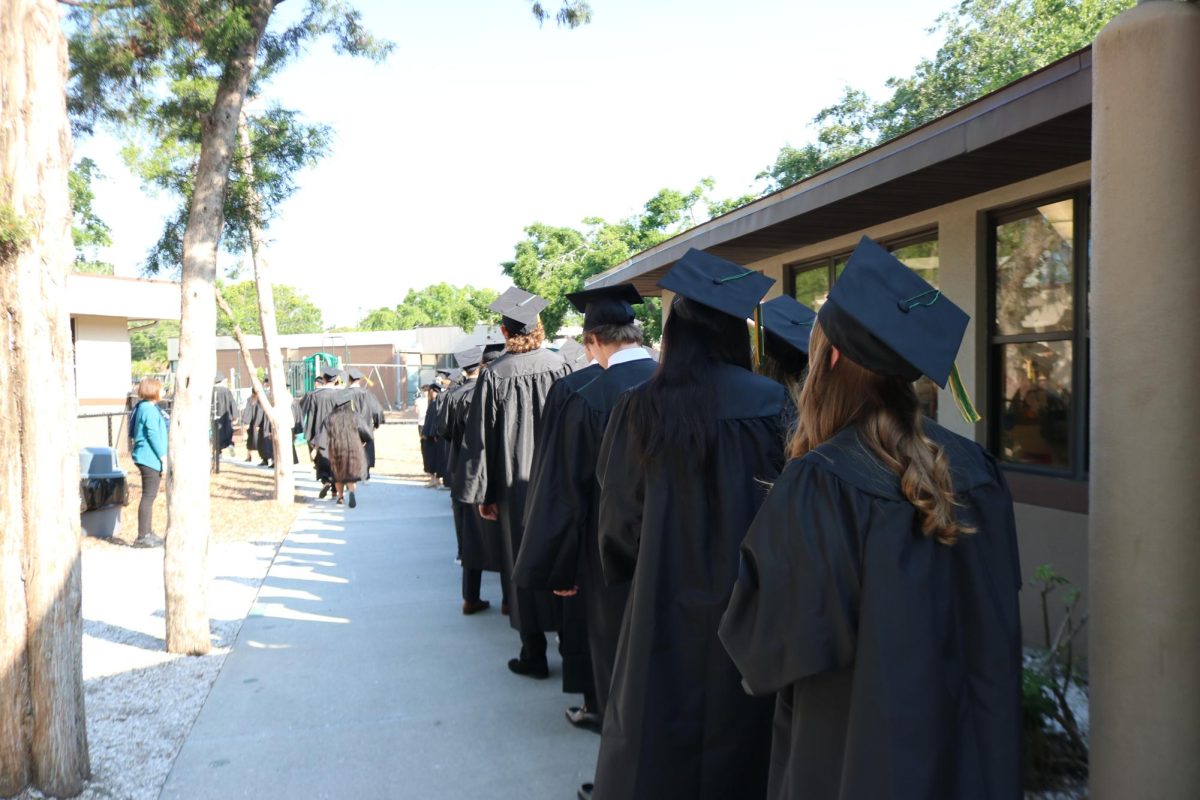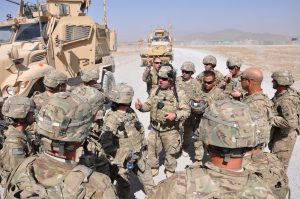Jackson Nealis’s Take
September 20, 2021
America began the war in Afghanistan with moral certainty. On September 11th, 2001, the terrorist group Al-Qaeda perpetrated the most heinous attacks in American history, costing the lives of almost 3,000 Americans. The government of Afghanistan, led by the Taliban regime, was harboring Al-Qaeda operatives and their leader: Osamba Bin Laden. At the time, it seemed like our moral duty was to launch Operation Enduring Freedom and invade Afghanistan to bring down the Taliban and Al-Qaeda and get vengeance for our fallen citizens.
It’s been 20 years since the Twin Towers fell and that moral certainty is gone. We lost it in the quagmire of stalemate: no progress gained, no objectives met, no peace achieved. Our original enemy, the Taliban, still controlled 20% of the districts in Afghanistan, with another 50% contested by them.
Confronted with this moral uncertainty, the question of what to do next has fallen to the fourth American President to preside over the conflict, Joe Biden. And despite what you hear on TV or read online or on Facebook: the decision wasn’t a simple or easy choice, but the right decision was made: we needed to withdraw from Afghanistan.
First and foremost, Biden had to grapple with the legacy of the previous administration. In Doha, Qatar, Trump administration officials, led by Secretary of State Mike Pompeo, cut a deal with the Taliban. The Taliban agreed, in that February 2020 deal, to not harbor terrorists and take the role of the US as the primary counter terrorist force in Afghanistan. In exchange, the US would release 5,000 prisoners and leave the country by May 31.
The Doha deal left out a key player in the Afghanistan conflict: the democratic government of Afghanistan. After the initial US invasion, our government created a republic in Afghanistan. We built roads and infrastructure, supported elections and an army at a cost of 144 billion dollars.
However, that government wasn’t invited to the negotiating table. Their exclusion sent a signal; that Secretary Pompeo and the American negotiators were willing to let the Taliban be part of the creation of a new Afghan state
It’s hardly any wonder that in the year and a half from the signing of the deal to today, local Afghan officials began to abandon their posts, surrendering some provinces without a fight. They lost hope in the Afghan government we created. Those desertions turned the Taliban wave of conquest into a tsunami, leading to complete takeover.
But the real question is as follows: what were President Biden’s choices? Confronted with the new Taliban wave, Biden was faced with either evacuating on time, no matter how rushed it would be, or escalating the war to stop the Taliban. He described the decision as “either follow through on the commitment made by the last administration and leave Afghanistan, or say we weren’t leaving and commit another tens of thousands more troops going back to war.” The Taliban’s rise meant that our force of advisors and support personnel wouldn’t have held back the tide of a furious Taliban and President Biden would’ve been forced to send yet another generation to war.
Americans have become disconnected from the war. A whole generation of Americans, including myself, weren’t even alive when Operation Enduring Freedom began. At the beginning of the summer, a Chicago Council Survey found 7 in 10 Americans supported withdrawing military forces from Afghanistan.
I find it hard to justify a war or escalating one where the vast majority of Americans cannot see the rhyme or reason in it and want to leave.
And while our collective minds were focused on this war, we lost sight of injustices elsewhere. Could we have prevented the Russian occupation of Crimea and the war in Ukraine if we weren’t embroiled in nation building in Afghanistan? Could we have prevented a coup in Myanmar or helped protestors in Cuba? While we spent 2.3 trillion dollars on war costs, veterans’ benefits and interest payments, the world has begun to backslide into authoritarianism. We cannot afford to be trapped in a static stalemate in an unwinnable war any longer. The entire globe needs American leadership, not just Afghanistan
The President made his decision: he would proceed with the evacuation, no matter how rushed it would be. It was fraught with peril: refugees suffering under poor conditions on US bases and individuals clinginging to planes in a desperate attempt to escape.
Then on August 26th, as the sun began to set on another day of evacuations, the unthinkable happened. A member of a terrorist group, ISIS-K, detonated a suicide belt and fired into the crowd killing 13 American service members and at least 169 civilians.
The Biden administration, as well as the governments of our NATO allies, have portrayed this evacuation as a complete success. But many are watching the images of Afghans clinging to planes, watching the wounded fill Kabul hospitals after the attack, US helicopters being flown by Taliban fighters and watching the caskets of US service members deplane and are wondering if the evacuation really was a success after all.
However, with a bigger picture, it becomes clear that the evacuation had to happen quickly. If we had waited, ISIS-K, the Taliban or other terrorist groups would’ve had more time to plan even more deadly attacks and even with that delay, Afghanistan still would’ve fallen to the Taliban. To save American and Afghan lives, we had to sacrifice the timeline we wanted as well as military equipment.
122,300 people were evacuated from Afghanistan. These are local allies who helped the West attempt to build democracy, even as terrorists threatened their lives and the lives of their families. They will soon be arriving in their new homes, throughout Europe, North America and the Middle East, and we should welcome them and honor their service. They were committed to advancing freedom in their own country and I have no doubt they will support freedom here.
No one is sure what will happen to Afghanistan. Will the Taliban’s hatred for outsiders extend to Russia and China who are looking to extend their own interests in the region? Will the Taliban’s feud with ISIS-K extend into the kind of counter terrorism from the Taliban the Trump deal promised? And what will happen to women and minorities in the country? Will they be forced back into the same kind of oppression seen in the 1990s?
I cannot be certain. No one can be certain. We may have withdrawn from Afghanistan, but we cannot forget our commitments to our newly arrived Afghan allies and our veterans who suffer from both the physical and mental consequences of the war.
The world needs America’s leadership. But the world and the American people need an America that’s not trapped in stalemate. Biden made the right decision to withdraw from Afghanistan and allow America to be dynamic in a changing world.

























































